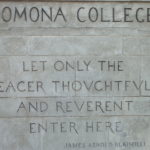The Do’s and Don’ts of Guidance Counselor Recommendations
One of your greatest sources of information during the applications process, as well as throughout your high school experience, is your guidance counselor. Your guidance counselor can not only provide you with information about what colleges are best suited to you and give you helpful advice about requirements, financial aid, and other college-related matters, but also play a crucial role in the admissions process—providing you with a letter of recommendation.
By now, you probably know that you need teachers to provide letters of recommendation on your behalf. (If you’re struggling to decide which of your teachers will write the best letters for you, check out our “What Makes a Good Recommendation Letter?” post.) But why exactly do you need a letter of recommendation from your guidance counselor?
Guidance Counselor Recommendations vs. Teacher Recommendations
Most schools ask for one to three teacher recommendations and one guidance counselor recommendation. In some cases, you may provide an additional letter, but you should only do so if you believe that letter can offer additional information that will contribute to your application.
While the teacher recommendation provides insight on your abilities, strengths, and accomplishments as a student, the guidance counselor letter offers understanding about you in the context of your entire class. Since high schools vary significantly in terms of rigor, student body, and courses, admissions committees want to compare you to your classmates to provide context for grades and other academic accomplishments.
For instance, if you are a mostly B student, but the average grade in your high school class is a C-, colleges are likely to understand that you are closer to the top than it might initially seem, and that your courses are particularly challenging. On the other hand, if you are a mostly A student, but so are the majority of your classmates, admission committees might see your high school as a grade inflator that easily hands out high marks, and will want to pay closer attention to your test scores and other application materials.
Both your teacher and guidance counselor recommendations are very important in the admissions process; they simply provide the admissions committee with different aspects of your academic background to consider.
Another key difference is that unlike with teacher recommendations, you cannot choose the person who will write your guidance counselor recommendation. It must be the guidance counselor you have been assigned. (Keep in mind that some high schools call this person by a different title, such as school counselor or academic advisor.)
Developing a Relationship with Your Guidance Counselor
Students in especially large high schools or class sizes may not know their guidance counselor very well, since he or she is responsible for advising so many students. Additionally, while your teachers only need to write letters for students they see regularly, your guidance counselor must write letters for an entire class, or large portion of a class if there are multiple counselors assigned to your high school.
If this is the case for you, you might want to take the opportunity to reach out to your guidance counselor personally to chat with him or her about your goals, ambitions, academic work, and other aspects of your life. Some schools might already have prearranged meetings for students and counselors in place, but it never hurts to put in the extra time to build a strong relationship. Even if you don’t attend a large high school or already feel that your guidance counselor knows you well, you may still want to schedule a meeting to discuss factors that may influence your school report that you haven’t covered until now.
Building a strong relationship with your guidance counselor is essential; if you want them to write a recommendation that shows off your strengths, they must know you well in order to best identify them. What you look like on paper is only part of the story; looking at your grades and honors may not convey the full story on what you hope to do in college and during your career, or what is most unique about you. Developing a strong relationship will also help you stand out among your classmates and allow your counselor to write a recommendation that is unique and personal.
At the same time, remember to be courteous when communicating with your guidance counselor, and avoid coming across as overly demanding. They are likely responsible for advising many students, and may not always be available to meet with you one-on-one or respond to your requests immediately. Be respectful of your counselor’s time, and make the most of the sessions you do spend with them.
In addition to setting up meetings with your guidance counselor, you should provide a resume or list of your classes and recommendations. This will give your recommender a clearer sense of your accomplishments so far and what your strengths and interests are.
And of course, as with teachers, you should always thank your guidance counselors for their hard work throughout the process.
Recommendations for Homeschooled Students
But what if you are homeschooled? The application process tends to be a bit different for homeschooled students. Most colleges will offer special application instructions to homeschooled students, so be sure to investigate the admissions process for the schools to which you are applying thoroughly.
In general, it is never a good idea to ask a parent or other relative for a letter of recommendation; relatives are have inherent biases, and colleges want to see a more objective perspective. However, some colleges, such as MIT, explicitly make exceptions for parent recommendations in the case of homeschooled students. Be sure to do your research before ruling out this option.
Depending on the particular college’s rules, an admissions committee may not separate recommendation types by teacher and guidance counselor, since you probably don’t have a guidance counselor. Therefore, you should think about the various adults in your life—coaches from athletic or academic teams, community services or religious leaders, or other types of mentors—and try to get multiple perspectives.
For instance, consider asking a sports coach and a community service leader, rather than two coaches. If you have taken courses elsewhere, such as a college or academic program, the educators who taught you are good choices for providing an academic perspective to replace teacher recommendations, while a mentor or leader in another area might replace a guidance counselor recommendation.
For more advice on applying to college as a homeschooled student, take a look at our “Homeschooled Student’s Guide to Applying to College” or “How Do Colleges Evaluate Homeschooled Students?” posts.
Curious about your chances of acceptance to your dream school? Our free chancing engine takes into account your GPA, test scores, extracurriculars, and other data to predict your odds of acceptance at over 500 colleges across the U.S. We’ll also let you know how you stack up against other applicants and how you can improve your profile. Sign up for your free CollegeVine account today to get started!



